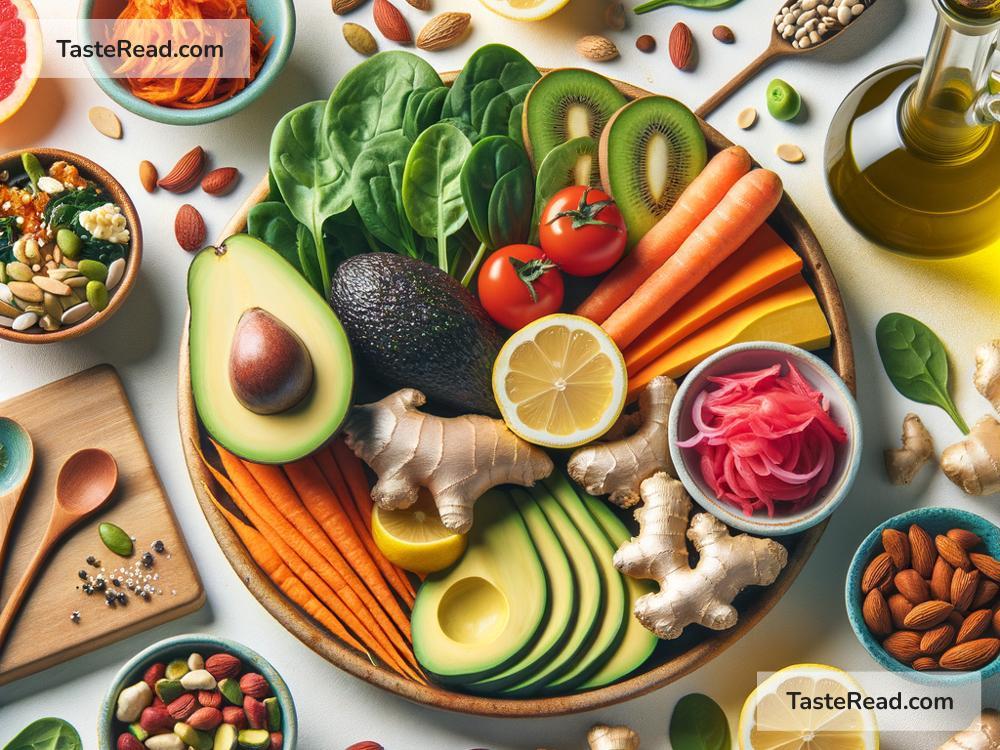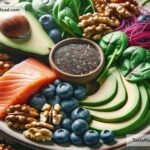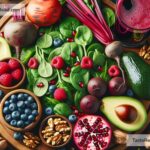Foods That Promote Healthy Nutrient Absorption: A Simple Guide
When it comes to eating healthy, most of us focus on what we eat. But did you know how we absorb those nutrients is just as important? You can eat the healthiest foods on the planet, but if your body isn’t absorbing the nutrients properly, you’re missing out on their full benefits. Fortunately, certain foods can help improve your body’s ability to absorb vitamins, minerals, and other nutrients effectively. Let’s dive into some foods that promote better nutrient absorption and how they work.
Why Is Nutrient Absorption Important?
Every time you eat, your body works hard to break down your food and extract essential nutrients like vitamins, minerals, proteins, and fats. These nutrients fuel your body, support your immune system, and keep you healthy. But poor absorption – caused by factors like gut issues, stress, or unhealthy eating habits – can lead to nutrient deficiencies, even if your diet is good.
Eating the right foods can make a big difference in how well your body absorbs nutrients. Some foods help digestion, while others pair well with certain nutrients to maximize absorption.
1. Healthy Fats Enhance Vitamin Absorption
Vitamins like A, D, E, and K are fat-soluble, meaning they need fat to be properly absorbed by the body. Adding healthy fats to your diet ensures these vitamins don’t go to waste.
- Foods to Eat: Avocados, nuts, seeds, olive oil, and fatty fish like salmon.
- Tip: Pair fat-soluble vitamin-rich foods like carrots (high in vitamin A) or kale (high in vitamin K) with a healthy fat source like olive oil or avocado for maximum absorption.
2. Fermented Foods Improve Gut Health
Your gut plays a crucial role in nutrient absorption. A healthy gut contains good bacteria (known as probiotics) that help break down food and absorb nutrients. Eating fermented foods boosts your gut’s good bacteria, improving digestion and overall absorption.
- Foods to Eat: Yogurt, kefir, sauerkraut, kimchi, miso, and pickles.
- Tip: Look for unsweetened, live-culture yogurt or minimally processed fermented foods to get the most probiotics.
3. Vitamin C Boosts Iron Absorption
Iron is an important mineral that helps transport oxygen through your blood, but it’s not always absorbed easily – especially non-heme iron (the type of iron found in plants). Vitamin C enhances iron absorption, making it more accessible to your body.
- Foods to Eat: Citrus fruits (oranges, lemons), strawberries, bell peppers, tomatoes, and broccoli.
- Tip: Pair iron-rich foods like spinach or lentils with vitamin C-rich foods. For example, a spinach salad with sliced oranges or bell peppers is a great combo.
4. Magnesium Helps Activate Enzymes for Absorption
Magnesium is a mineral that supports over 300 enzymatic reactions in your body. Many of these enzymes are involved in processing nutrients, so eating magnesium-rich foods can indirectly improve overall absorption.
- Foods to Eat: Pumpkin seeds, almonds, spinach, black beans, and dark chocolate.
- Tip: Snack on a handful of nuts or seeds for a magnesium boost, or make a dark chocolate smoothie with spinach for a double punch of nutrients.
5. Fiber Promotes Digestive Health
Fiber is essential for a healthy digestive system. It keeps things moving in your gut and promotes the growth of good bacteria. While fiber doesn’t directly enhance nutrient absorption, it creates the ideal conditions in your gut for effective digestion.
- Foods to Eat: Whole grains, legumes, fruits, vegetables, and nuts.
- Tip: Include both soluble fiber (found in oats and apples) and insoluble fiber (found in brown rice and broccoli) for balanced gut health.
6. Calcium and Vitamin D Work Together
Calcium is important for strong bones and teeth, but it needs vitamin D to be absorbed properly. Without enough vitamin D, your body can’t utilize the calcium you consume.
- Foods to Eat: Dairy products (milk, cheese, yogurt), fortified plant-based milks, salmon, egg yolks, and mushrooms.
- Tip: Spend a little time in the sun every day (your skin produces vitamin D from sunlight) or consider vitamin D-rich foods alongside calcium-rich options.
7. Zinc Supports Digestive Enzymes
Zinc is a mineral that supports enzyme activity, including those needed for digestion. A zinc-rich diet can improve your body’s ability to absorb nutrients from food.
- Foods to Eat: Shellfish, beef, chickpeas, cashews, and whole grains.
- Tip: Enjoy a hearty beef or chickpea stew with whole-grain bread for a zinc-filled meal.
Habits That Improve Nutrient Absorption
Beyond choosing the right foods, a few simple habits can improve how your body absorbs nutrients:
– Chew Your Food Well: Digestion starts in your mouth, so chew thoroughly before swallowing.
– Stay Hydrated: Water plays a role in nutrient transport and digestion.
– Avoid Overcooking: Overcooking can destroy nutrients, especially vitamins. Try steaming or lightly sautéing veggies.
Final Thoughts
The foods you eat can do more than just nourish your body – they can also enhance how well your body absorbs nutrients. By choosing nutrient-dense foods that work together or improve gut health, you’re helping your body make the most out of every meal. Combine healthy fats, fiber, probiotics, and a variety of vitamins and minerals to support absorption and digestion.
Eating a balanced diet doesn’t have to be complicated. Keep these tips in mind, and your body will thank you with better energy, immunity, and overall health. After all, when your body absorbs nutrients effectively, every bite becomes a powerhouse for wellness!


